
The kitchen is one of the most common places where Ants can be found in a home. You may notice small trails of ants crawling near the sink, across the countertops, or inside cabinets. This is no coincidence—kitchens are a prime target for ants due to the availability of food, water, and shelter. Understanding why ants invade your kitchen and learning how to prevent and eliminate them can help keep your home pest-free.
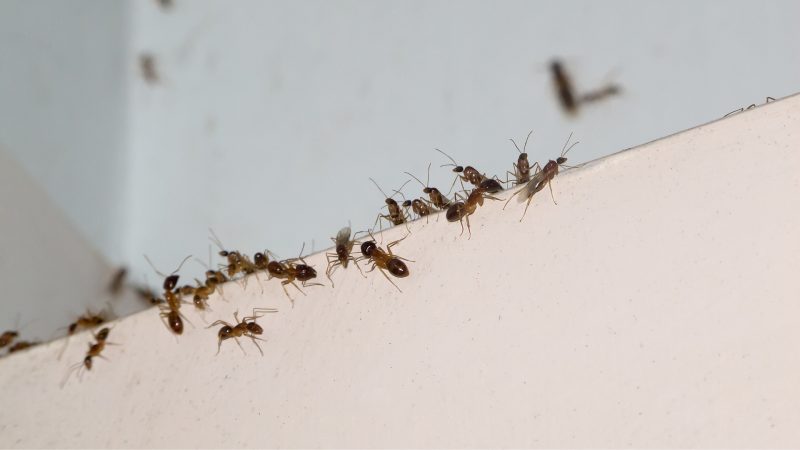
Food Availability
Ants are constantly on the hunt for food, and kitchens are full of enticing aromas and easy access to nourishment. Whether it’s crumbs on the floor, spilled sugar, or uncovered food, ants can quickly detect even the smallest traces of food, especially sugary or greasy items. They leave behind a trail of pheromones to signal other ants to the food source, creating the characteristic trails you often see.
Water Sources
Ants, like all living creatures, need water to survive. Kitchens often provide plenty of moisture from leaky faucets, damp countertops, or water spilled around the sink. The presence of water is especially attractive to ants during hot or dry weather when water sources are scarce outdoors.
Shelter
The kitchen offers ants a variety of hiding spots and shelter. Ants can nest in cracks, gaps in cabinets, under appliances, or even inside walls. The warmth and humidity often found in kitchens make it an ideal location for them to establish colonies.
Access Points
Ants are small enough to enter your home through the tiniest cracks, gaps, or holes around windows, doors, and utility pipes. Once inside, the kitchen provides an environment that can sustain their colony. Even if you clean regularly, small gaps or openings can allow ants easy entry into your kitchen.
There are several types of ants that may invade your kitchen, including:
Maintain Cleanliness The first and most important step in preventing ants from invading your kitchen is to maintain cleanliness. Ants are attracted to food residues, so make sure to:
Eliminate Water Sources Ants are drawn to moisture, so it’s crucial to eliminate any water sources in your kitchen:
Seal Entry Points To prevent ants from entering your kitchen, inspect the area for possible entry points and seal them:
Use Natural Ant Deterrents You can deter ants naturally by using common household products:
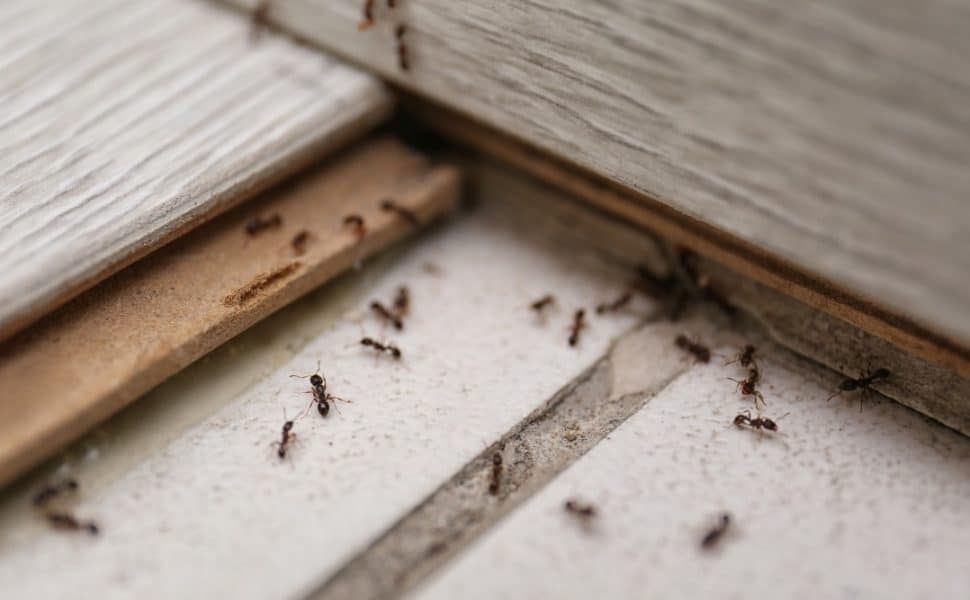
Set Ant Baits If you already have an ant infestation, using ant baits can be an effective solution. Ant baits attract ants, which then carry the poison back to the colony, effectively eliminating the entire nest. Place baits near areas where you see ants, but keep them out of reach of children and pets.
Call a Professional Pest Control Service If your kitchen continues to be overrun by ants despite your efforts, it may be time to call a professional pest control service. Professionals can assess the situation, locate the nest, and apply targeted treatments that eliminate ants from the source. They can also provide preventive measures to ensure your home remains ant-free in the future.
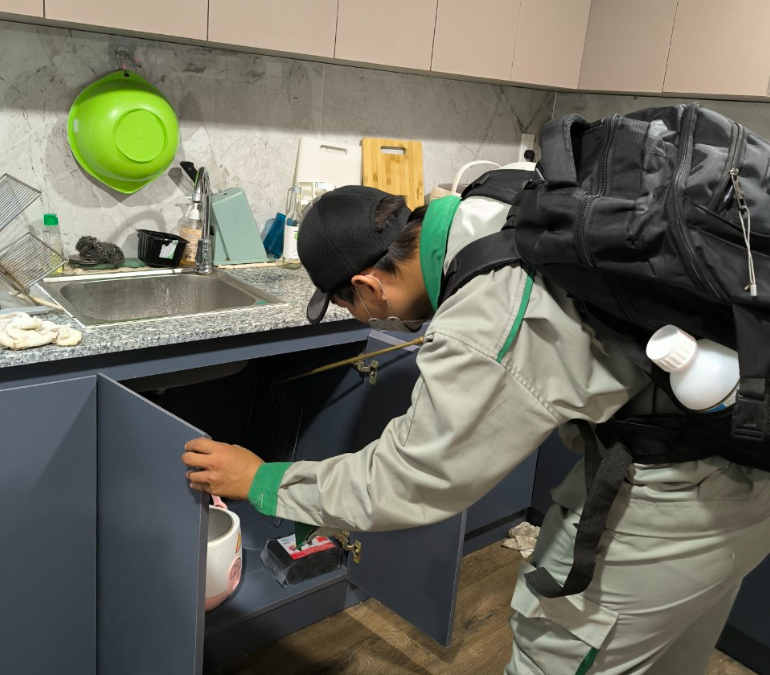
Once you’ve eliminated the ants in your kitchen, it’s essential to take preventative steps to keep them from returning:
Ants are persistent pests that can quickly turn your kitchen into a food source if left unchecked. By understanding what attracts them and following effective prevention and elimination strategies, you can keep your kitchen ant-free. Whether you opt for DIY solutions or enlist the help of a professional pest control service, taking proactive measures will ensure that ants stay out of your home and away from your food. If you’re dealing with a persistent ant problem, contact Global Pest Control for expert assistance.
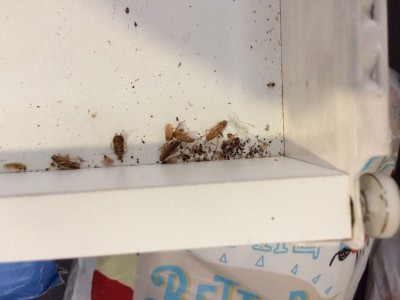 Safe and Effective Cockroach Extermination Services for Ho Chi Minh Apartments
Safe and Effective Cockroach Extermination Services for Ho Chi Minh Apartments
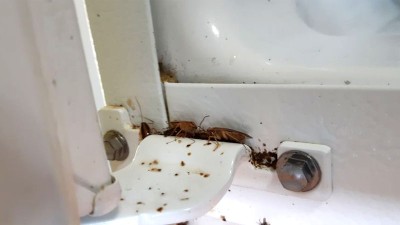 Keep Your Apartment Cockroach-Free: Best Pest Control Services in Ho Chi Minh
Keep Your Apartment Cockroach-Free: Best Pest Control Services in Ho Chi Minh
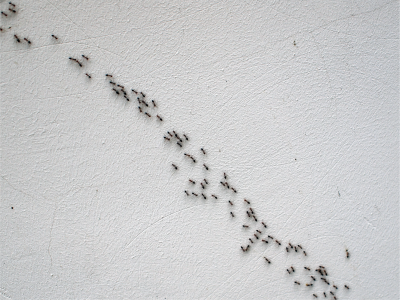 Comprehensive Ant Control Services for Apartments in Ho Chi Minh City
Comprehensive Ant Control Services for Apartments in Ho Chi Minh City
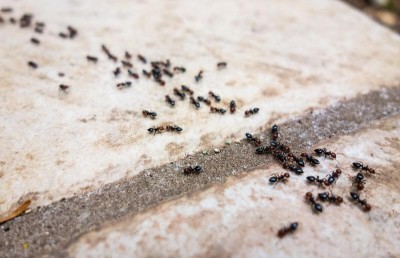 Winged Ants: Why Are They Flying Into Your Home?
Winged Ants: Why Are They Flying Into Your Home?
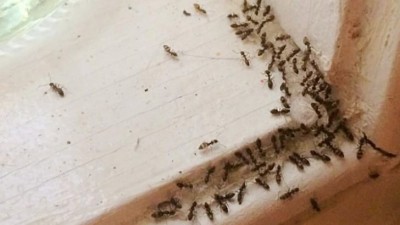 Why Ants Always Appear in the Kitchen and How to Deal with Them Effectively
Why Ants Always Appear in the Kitchen and How to Deal with Them Effectively
 Effective Pest Control for Residential Apartments and Apartment Complexes
Effective Pest Control for Residential Apartments and Apartment Complexes